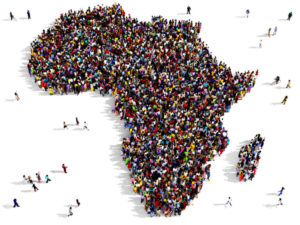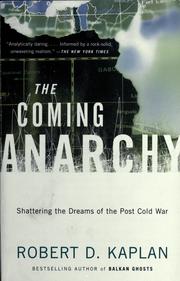 By 2040—a decade before Africa’s population is forecast to reach 2.1 billion, or double what it is today—the continent will become majority urban. That means over a billion people in poorly funded cities with crumbling or inadequate infrastructure, according to Eurasia Group analysts Amaka Anku and Tochi Eni-Kalu.
By 2040—a decade before Africa’s population is forecast to reach 2.1 billion, or double what it is today—the continent will become majority urban. That means over a billion people in poorly funded cities with crumbling or inadequate infrastructure, according to Eurasia Group analysts Amaka Anku and Tochi Eni-Kalu.
Projections like these have inspired warnings of impending calamity. In his 1994 essay “The Coming Anarchy,” the author Robert Kaplan famously foresaw a twenty-first-century Africa beset by lawlessness, joblessness, administrative dysfunction, ethnoreligious tension, and unchecked pollution. Often overlooked in this debate is the role that electoral politics will play in shaping the future of African cities, they write for Foreign Affairs:
 Urban residents are, on average, better educated than rural dwellers and more exposed to contrasting political views. They also have better access to infrastructure, such as roads, electricity, potable water, and Internet connectivity—even in poorly resourced slums…. (Many Nigerians, particularly in rural parts of the north, have no access to electricity at all.) In part because of these quality-of-life differences, urban voters tend to care more about structural economic and governance issues than their rural counterparts, who are typically more concerned with basic social welfare needs. Afrobarometer* survey data from South Africa, Nigeria, and Kenya—three of the most populous democracies in sub-Saharan Africa—bear out these trends.
Urban residents are, on average, better educated than rural dwellers and more exposed to contrasting political views. They also have better access to infrastructure, such as roads, electricity, potable water, and Internet connectivity—even in poorly resourced slums…. (Many Nigerians, particularly in rural parts of the north, have no access to electricity at all.) In part because of these quality-of-life differences, urban voters tend to care more about structural economic and governance issues than their rural counterparts, who are typically more concerned with basic social welfare needs. Afrobarometer* survey data from South Africa, Nigeria, and Kenya—three of the most populous democracies in sub-Saharan Africa—bear out these trends.
By increasing political pressures for accountability, urbanization complements two other recent trends that augur well for African governance: rapid demographic change and growing political competition, Anku and Eni-Kalu. conclude. RTWT
 Russia is proposing to move toward ending the ban on selling so-called blood diamonds from the Central African Republic, a former French colony that’s struck recent military and commercial ties with Moscow, amid resistance from the U.S. and Europe, Bloomberg reports (HT:FDD).
Russia is proposing to move toward ending the ban on selling so-called blood diamonds from the Central African Republic, a former French colony that’s struck recent military and commercial ties with Moscow, amid resistance from the U.S. and Europe, Bloomberg reports (HT:FDD).
Amid all the fascination with Russia’s inroads in Africa, why are we overlooking the case of South Africa? asks analyst Andrew S. Weiss. @andrewsweiss It’s a fascinating story of Kremlin overreach, predatory behavior & Cold War ties that we dug into for Carnegie’s #GlobalRussia project: carnegieendowment.org/2019/12/16/nuc 1/







